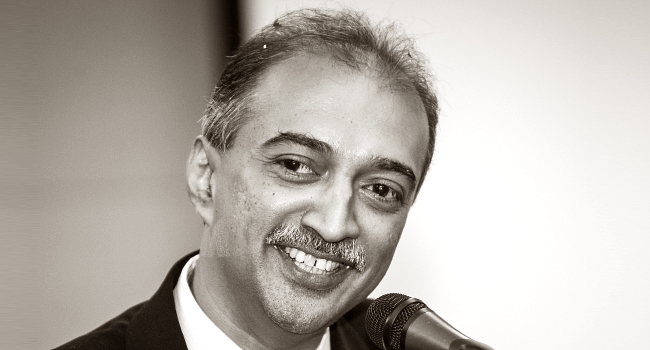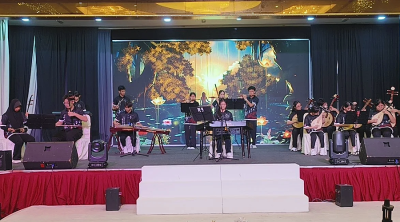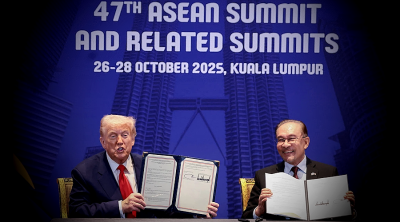
By Asohan Satkunasingham
When the Pakatan Harapan Government came into power after GE14, I wrote to the then Education Minister suggesting ways to reform the current education system. I impressed upon him that for a nation to progress in mind, body and soul a good education system is vital. I am also intrigued during the recent Harith Iskander's Talk Show on What's Going On, Malaysia? where Prof Tajuddin Rasdi spoke with great conviction on how a progressive education should manifest.
Malaysia has come a long way and GE14 was a testament that people's creed for change has begun despite the midway turn of events, I am certain change is here to stay. Malaysians are no longer looking for a fix liken to "old wines in new bottles". Rather they wish to see the government in light of "new wines in new bottles". They are willing on delayed gratification to wait and savor the wine as it increases in value over a period of time.
In the education space, the Education Ministry must take the approach of "if it ain't broke, break it and find an innovative way to fix it". In my view, a good education system must strive for human values growth, so that the fifth aspiration of the Rukun Negara in building a progressive society, oriented towards modern science and technology becomes a true reality and not a mere rhetoric.
The first step, is to keep our education system under full accountability by the government of the day. The government must stop outsourcing school education to others, where private and other schools are mushrooming. In doing so, education is treated like business. We always choose to sight Finland and other Scandinavian countries as fine examples of a good education system in building a progressive nation. I was told that their schooling system is fully controlled by the government without being outsourced as a business.
As Malaysians, I am certain if the education system serves its true purpose, parents would stop sending their children to private, home schools as well as international schools. Many parents have gone deep into their pockets to see their children in such schools, some stopping half way through due to affordability. I am sure, the pandemic has also impacted their affordability.
The ultimate consumer of any education system is the corporate world. Hence the corporate world serving its corporate social responsibility must rally with the Education Ministry to help shape and build the talent pipeline in schools.
In echoing the fifth aspiration of our Rukun Negara, this is my suggestion for the Education Ministry. I must confess here that I am a human resource practitioner and not an educationist. All that I am interested is to see a nation built on a strong education as its foundation for progression.
1) Build Character as the thrust for early childhood, Year 1, Year 2 and Year 3 schooling without emphasis on academics. A child is like a raw clay. These are building years to mould them in character and fuel their dreams. Do away with nursery rhymes that colonize minds and have negative words such as down, fall, etc. so that only positive vibes will mould these raw clays.
2) In Year 4 and 5, build the curriculum along innovative and creative skills development, which are essential in progressing towards modern science and technology. Reorientate the classroom teaching and arrangements. Have a ratio of one teacher to twenty students for better attention and interaction. Ensure the teacher is competent in unleashing the potential energy of each child and direct that energy towards enhancing their innovative and creative self.
3) Primary education should stop in Year 5, where the child is provided an assessment to display the level of innovative and creative skills that he or she has developed. This should follow with streaming them based on their cognitive, psychomotor and motor skills either undergoing an entrepreneur or intrapreneur path for the next five years in secondary schooling.
4) In secondary school based on the above streaming, develop the curriculum to further unleash those skills. A child with cognitive ability should be provided with knowledge and skills skewed to develop these ability and hone as future scientist, researchers, leaders etc. Those with psychomotor and motor skills, the Education Ministry should work with the various skill development centers to develop their skills as future pilots, machinist and all jobs that needs this ability for Industrial Revolution 4.0.
5) Generally, bring students back to school during their school holidays to undertake community services within the community they are located. This will encourage and build students with discipline and civic consciousness. These activities, if possible, should involve their parents through Parents Teachers Associations (PTA) and community leaders. It will develop and sow seeds of accountability over responsibility and an attitude for self-service to care for the surroundings. Ultimately it will change the society to take ownership in their vicinity and stop blaming their local councils to provide services for their own omissions in lack of civic mindedness.
6) Once completed secondary schooling, another assessment will be conducted to ascertain the skill level of the child and the developed ability. This assessment will be used to decide the vocation the child will pursue in university. Each university must be earmarked as a center of excellence for developing cognitive, psychomotor or motor skills.
7) The corporate organizations would then select the under-graduated based on this distinguished ability as their future talent-pipeline, which will help in deciding the structure for internship and workforce planning.
In galvanizing this suggestion, the Education Ministry needs to consider adopting the following eight points to build an effective education system.
1. Effective education promotes core ethical values as well as supportive performance values to build good character of mindset, behavior and feelings as the foundation for an education system. It will help set their moral action.
2. Effective education uses a comprehensive, intentional and proactive approach to student development.
3. Effective education creates a caring school community where PTA and other stakeholders are committed in a child's education journey.
4. Effective education will include a meaningful and challenging academic curriculum to respect learner's ability, develop their character, and helps them succeed in life's endeavors and keep them not only in employment but in employability and others with entrepreneurial aspirations.
5. Effective education strives to develop students' self-motivation to be ornaments to the nation reflected in their values for nation branding.
6. Effective education engages the school staff as a learning and moral community sharing responsibility for education and adheres the same to guide students.
7. Effective education fosters shared leadership and long-range support of the education initiative with its stakeholders in particular to engage with families and community members in the child's development and progress.
8. Effective education ultimately will assess the school, its staff functioning as educators, and the extent to which student's manifest good character and progress to help build the talent pipeline for the corporate world as well as leadership for good governance in all spheres.
(Asohan Satkunasingham is an Award-Winning Author, Progressive Human Resource Practitioner and High Impact Corporate Teacher.)
ADVERTISEMENT
ADVERTISEMENT


































